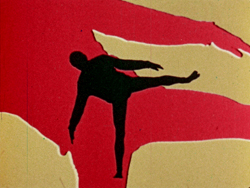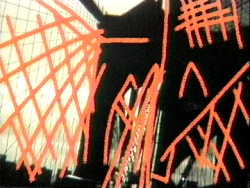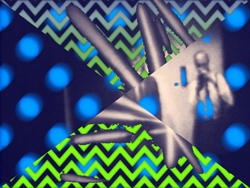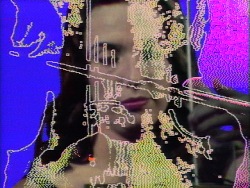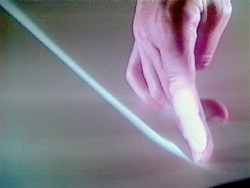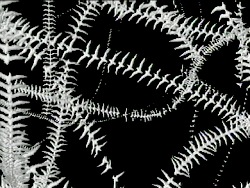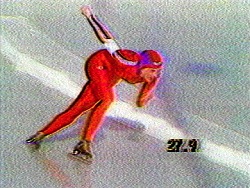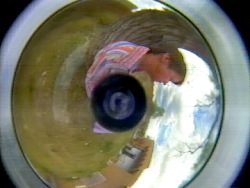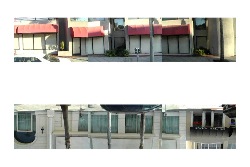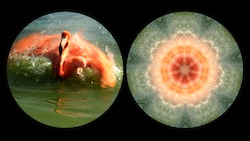
SCREEN PLAY:
Moving Image Art
SCREEN PLAY:
Moving Image Art
1671 Collins Avenue
Miami, Florida
December, 2014 - March, 2015
SCREEN PLAY:
Moving Image Art
1671 Collins Avenue
Miami, Florida
December, 2014 - March, 2015
SCREEN PLAY:
Moving Image Art
1671 Collins Avenue
Miami, Florida
December, 2014 - March, 2015
Works
Assemblage is a recently rediscovered lost film featuring Merce Cunningham and his early dance company: Carolyn Brown, Sandra Neels, Valda Setterfield, Meg Harper, Susana Hayman-Chaffey, Jeff Slayton, Chase Robinson, and Mel Wong. A collaboration with director and former dancer Richard Moore, Assemblage features Cunningham dancing with his company in a public happening in San Francisco's Ghirardelli Square in November 1968. Cunningham's riveting performance--conceived from the beginning as a dance staged for the camera--is amplified by Moore's astonishing special effects and a soundtrack by John Cage, David Tudor and Gordon Mumma. Rediscovered after Cunningham's death, Assemblage was transferred from 16mm and colorized by artist and filmmaker Charles Atlas, himself a longtime collaborator of Cunningham's.
In Binocular Menagerie, Thornton plays with vision, perception and transformation. A series of images of animals—a virtual menagerie of birds, reptiles and mammals—is framed within a format of two circular windows. Each animal's movements on the left are remapped into an elegant abstraction on...
Still photographs, live video, and superimposed drawings created on a Quantel Paintbox are fused in this visual poem dedicated to a New York City landmark, the Brooklyn Bridge. Emphasizing its strength and beauty, Jonas locates the bridge as an iconic site in this meditative, cryptic study of...
Alternating between square and rectangular video canvases, Hubbard's camera frames from above, capturing material deconstruction and abstraction in aspect ratios akin to a Jackson Pollock painting.
Deep Blue Sky is a witty game of association and juxtaposition. In this silent motion drawing or "structure," Weiner engages in visual and linguistic play. The interaction of Weiner's elliptical text and graphic symbols - which suggest stylized tic-tac-toe boards - allude to the relationships between artist/viewer and language and perception: "That of which there is no trace does not enter into the equation."
EAI commissioned artist Takeshi Murata to create a special introductory piece for EAI's 40th anniversary programming, which will take place throughout 2011. Murata's creation is a stunning homage to forty years of experimentation by artists. With his intricate and lush interventions into archival footage from the 1960s and '70s (including glimpses of EAI founder Howard Wise), Murata initiates a vivid dialogue between the analog past and the digital now.
Global Groove is a seminal work in the history of video art. Paik's radical manifesto on global communications in a media-saturated world is rendered as an electronic collage, a sound and image pastiche that subverts the very language of television. With surreal visual wit and an antic neo-Dada sensibility, Paik brings together a cross-cultural melange of artworld figures and Pop iconography.
Working with a stationary camera, Hoover brings a painterly, minimalist aesthetic to these contemplative explorations of light, shadow, color and scale, which evolve in real time with no editing. She writes, "Essentially I see my work as a trigger that ignites associations in the viewer." The...
The images in Orka — which means "life force" — were shot by Steina in the wilds of her native Iceland in 1996. A "tracer" device records the micro-movements of nature over time, such as the paths of birds and waves. Steina's digitally altered images of nature have a stark and often startling...
In the dynamic Pop-Pop Video works, Birnbaum appropriates standard television genres — the soap opera, sports event, action drama — to deconstruct the idiomatic meaning of TV's structural codes and conventions, such as the intercut and reverse shot.
Here Moulton's alter ego Cynthia again gains access to a parallel universe via the transformative powers of New Age body treatments and domestic objects. After applying a facial beauty mask, she moves through an environment energized with Southwestern motifs and rituals, from sculpted heads and Georgia O'Keefe-like forms to sand painting and hot stone massage. Ultimately Cynthia is transported to a fantastical world and emerges transformed.
Six Colorful Inside Jobs is one of a series of films that Baldessari produced in the 1970s, which are newly available through EAI. Seen from a bird's eye view, a figure paints the walls and floor of a windowless room six times in six days, using each of the primary and secondary colors.
Summer Salt is a dramatic exploration of the phenomenology of space and vision, as Steina uses mechanical and electronic devices to physically investigate the Southwestern landscape. This artificial vision allows the viewer altered perceptions and spatial perspectives.
Three Slideshows After Ed Ruscha and The Networked Computer
Michael Bell-Smith
2006, 7:07 min, color, silent
Writes the artist: "The idea behind these pieces was to re-imagine the approaches to photography and the archive Ed Ruscha displayed in his books, through the lens of a post-personal computer, post-Internet, post-Google image search age." To do so, Bell-Smith arranged images sourced from the Internet into three Powerpoint slideshows.
